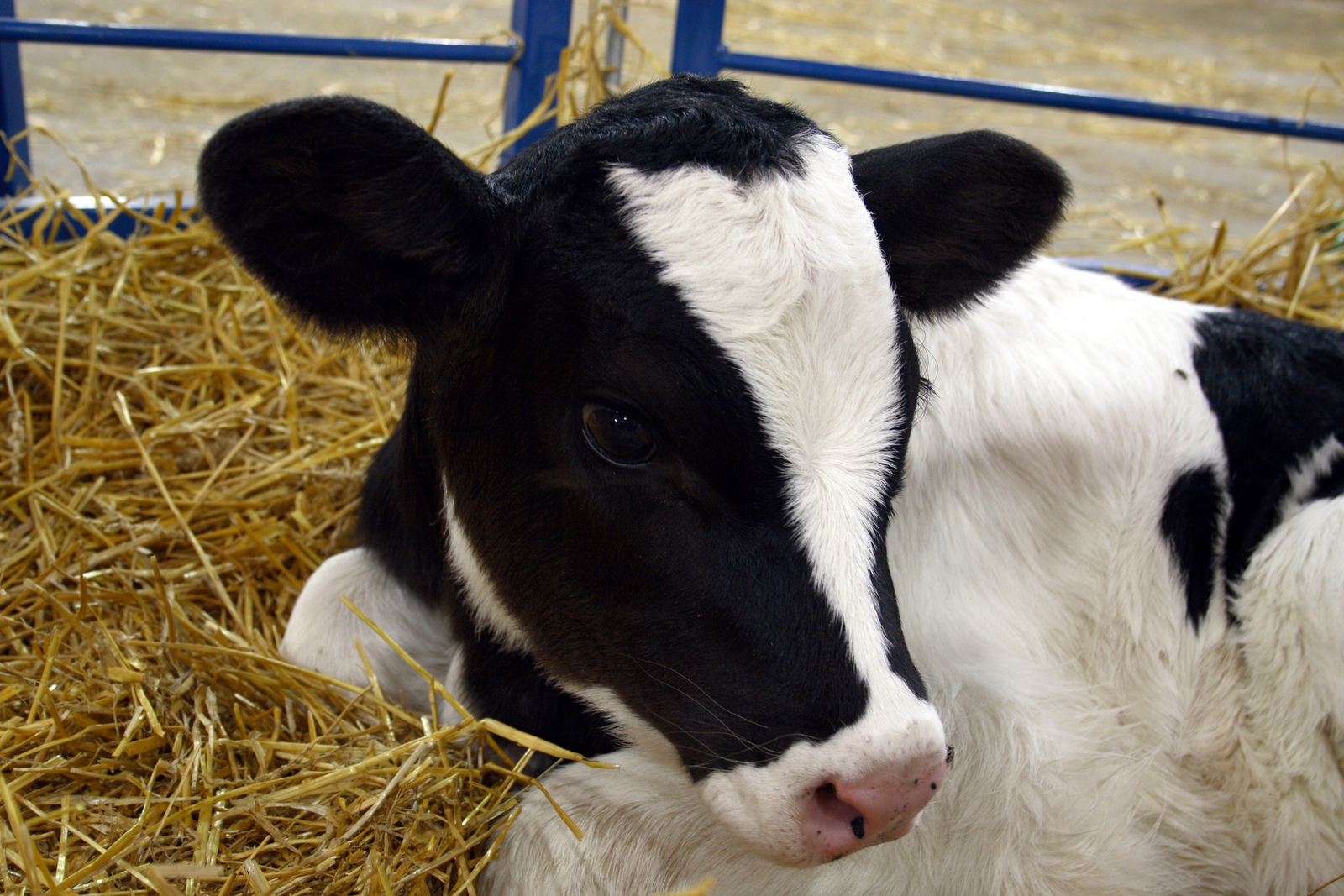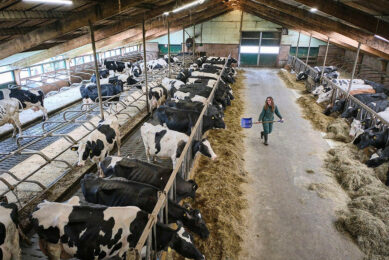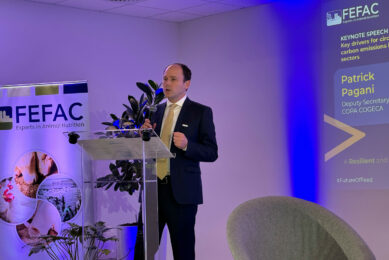Calves want to work for their roughage

If calves could have the choice, they would put together a healthy diet. This is one of the conclusions drawn from the PhD study of Laura Webb from the University of Wageningen in the Netherlands. In her study, Webb searched for new feeding strategies for veal calves to improve their welfare.
Webb used a new method to determine how strong the calf’s preference is for forage species such as hay and straw. In one of her experiments, she trained the calves to work for the roughage. In a test room, the calves had access to two types of roughage; one type on the left and another on the right side of the room. Each side had a “button” that could be pressed by the calf’s muzzle.
Calves prefer hay
To receive the roughage they preferred, the calves had to press one of two buttons. The required number of times the button had to be pressed ranged per forage species. By incorporating this variation, Webb gained insight into the strength of their preference. She found that calves prefer to eat long instead of short cut hay. The calves also seem to be work harder for hay, compared to straw. In another experiment, in which calves could choose between milk replacer, concentrate feed and three types of roughage, it was shown that the preferences varied considerably. This makes it difficult to recommend a general feeding strategy for veal farmers, says Webb. She concludes that a veal calf of six months must have daily access to two kilos of concentrates and one kilo of roughage, in addition to the milk. But to improve the welfare of all calves, it is best that the animals can choose for themselves what they want to eat, and how much of it. Webb says that this can prevent feed related behaviour problems.
Improving welfare
In the past, veal calves in the EU were fed mainly on milk replacer and low amounts of solid feed. Therefore they could not express their natural need to chew, which led to ‘artificial chewing’, ‘tongue rolling’ and ‘excessive licking and biting’ at bars in the stable. Nowadays, veal calf farmers provide a mixture of concentrates and short cut straw, usually about two kilos per animal per day. Webb’s research can contributed to improving the welfare of veal calves.











